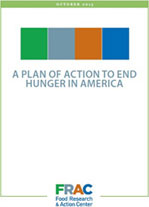February 20, 2020
Unfortunately, on January 27th, a 5-4 U.S. Supreme Court decision lifted the nationwide injunction that was preventing the new Department of Homeland Security (DHS) public charge rule from going into effect. This decision clears a path for the administration to implement the public charge rule within the United States, except for in Illinois, which has gained a statewide injunction of its own.
The DHS US Citizenship and Immigration Services (USCIS) indicated that it will begin implementing the Inadmissibility on Public Charge Grounds final rule (“Final Rule”) on February 24, 2020.
This was not the start to 2020 that we had hoped for, but three points need to be underscored:
1) The legal fight is ongoing: The Supreme Court did not rule on the merits (whether the DHS rule or the manner in which it was adopted are valid) of the new public charge rule. Its ruling was limited to whether the nationwide injunction would remain in effect. There are still multiple lawsuits challenging the public charge rule that will be decided on the merits. The courts hearing those cases could overturn the public charge rule. FRAC, along with partners, submitted an amicus brief, opposing the rule and asserting that the regulation will deny nutritional assistance to millions, threatening the nutrition, health, and well-bring of immigrant families and the nation.
2) It is critical to reflect on who is impacted by the terms of the rule and to work against the chilling effect: This mean-spirited rule’s intended effect is to instill fear and confusion that deters immigrant families — particularly families of color and low-income families — from accessing programs that safeguard their nutrition, health care, housing, and economic security. To counter this chilling effect, it is important to keep in mind that:
- Many immigrants are not subject to the new rule. Refugees, asylees, survivors of trafficking, domestic violence and other serious crimes, and other “humanitarian” immigrants are NOT subject to public charge determinations. Lawful permanent residents (LPRs or “green card holders”) are not affected, unless they leave the US for more than 180 days and seek to reenter.
- The chilling effect on SNAP participation is mostly affecting immigrants who are not subject to DHS public charge determinations. The number of people who will not participate in SNAP because they would be directly impacted by the terms of the DHS rule (subject to DHS public charge determinations) is limited. The vast majority of non-citizens eligible to participate in SNAP are not subject to DHS public charge determinations (for some people there are exceptions if they leave the U.S. for an extended time).
- Use of SNAP does not automatically make a person a public charge. Officials must look at a range of factors when determining whether an applicant is likely to become a public charge in the future. This includes the applicants’ age, health, income, assets, resources, education/skills, family they must support, and family who will support them. The determination cannot be made on one factor alone.
3) Your work is and has been vital: Every day implementation of the rule has been delayed has been a victory for immigrant families and for the country. Important action—including advocacy and a record breaking 260,000 comments—prevented additional programs that families need to address food insecurity from being included in the public charge rule. Nutrition programs like WIC, school meals, summer meals, child care meals, and older adult programs (such as home-delivered meals and congregate meals) are not included in this rule. As such, use of these programs cannot be considered in a DHS public charge determination.
Even so, the work is far from over. The new rule implementation and other threats loom large. Continued action from stakeholders like you is essential for addressing the rule’s “chilling effect” and all other efforts to take food away from families struggling with hunger and poverty.
To learn more about these and other developments check out:
Protecting Immigrant Families Campaign page



